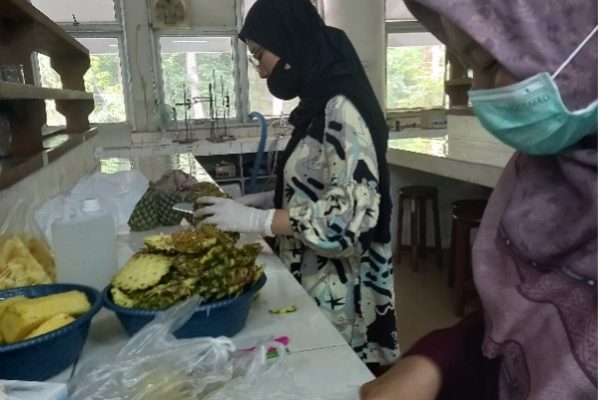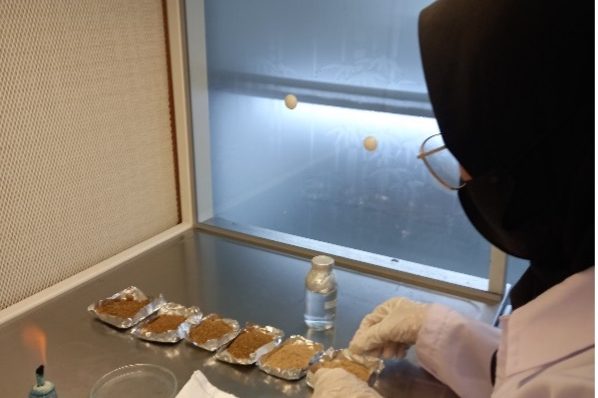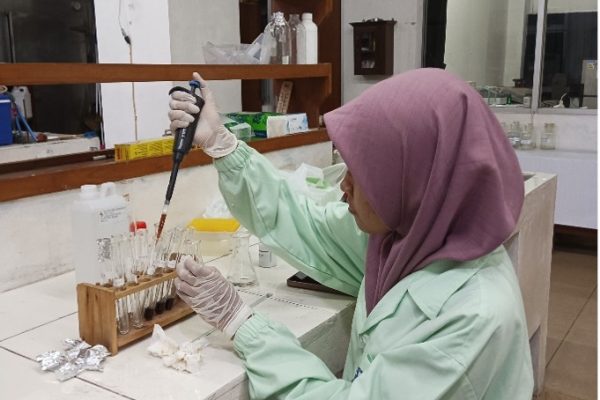Colon cancer originates from the longest part of the large intestine. Its incidence ranks third worldwide, and it is projected to increase by 63% by 2040. However, current treatments for colon cancer, including surgery, radiotherapy, and chemotherapy, tend to cause high toxicity and yield unsatisfactory results. Developing a safer treatment for colon cancer with minimal side effects remains a challenge. This issue motivated five UGM students, part of the PKM-RE Team that qualified for PIMNAS 2023—Atikah Nurunnissa’, Anisa Dewi Rahayu, Lathief Al Umami, Ilma Tazkiya, and Dwi Ardyan Syah Mustofa from the Faculty of Biology, along with their supervising lecturer, Woro Anindito Sri Tunjung, S.Si., M.Sc., Ph.D., to explore natural substances as a safer alternative for colon cancer treatment.
Anisa explained that pineapples are abundant in Indonesia, ranking fourth among the world’s largest pineapple producers. The core, skin, and crown of pineapples contribute 50% of the total weight of the fruit. Surprisingly, these parts contain phenolic compounds, terpenoids, and bromelain enzymes with potential anti-cancer properties. The application of pineapple core, skin, and crown for anti-cancer purposes involves a fermentation process to break down complex compounds into derivative compounds. Rhizopus.oryzae is used as a fermentation starter to enhance the value and content of anti-cancer compounds, specifically targeting colon cancer. Successful fermentation processes have demonstrated the production of more specific derivative anti-cancer compounds. [Author: Anisa Dewi Rahayu]





